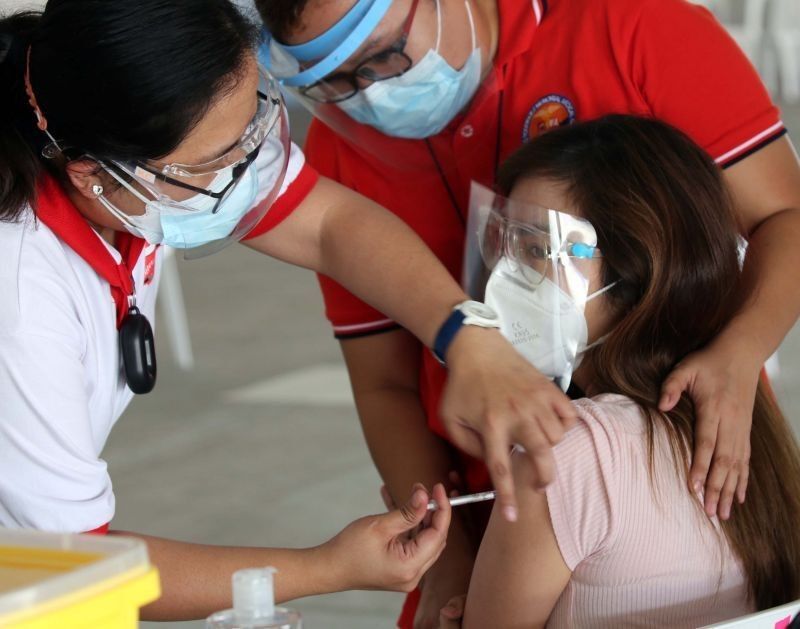Your questions answered: Private sector’s role in COVID-19 vaccination

MANILA, Philippines — From the beginning, the government has leaned heavily on the private sector for help in its response to the coronavirus pandemic, and it appears that this will hold true even with its vaccination program that is touted to end the outbreak.
To date, the country has secured a total of 37 million COVID-19 vaccine doses from British-Swedish drugmaker AstraZeneca and United States biotech company Moderna through the help of the private sector.
But some questions on the role of the private sector still linger. We answer some of those here.
Can private companies buy vaccines?
Yes, but they cannot just buy vaccines on their own.
According to Republic Act No. 115251 or the COVID-19 Vaccination Program Act, private entities may buy coronavirus vaccines only in cooperation with the Department of Health and the National Task Force Against COVID-19 through a multiparty agreement which shall include the DOH and the vaccine supplier.
This has prompted the Philippine Chamber of Commerce and Industry, the largest business group in the country, to ask the government to let them buy and import COVID-19 vaccines without restrictions or conditions.
But health officials have said this is not possible as the vaccines currently in use to inoculate against COVID-19 have only received clearance for emergency use and are not yet available commercially.
How can private companies buy vaccines?
The process on how private companies can buy vaccines has not yet been laid down on paper, but DOH director Enrique Tayag detailed at a recent webinar how private firms can work with the government to buy vaccines.
According to Tayag, companies would have to submit a letter of intent to vaccine czar Carlito Galvez Jr., where they would detail how many shots they would like to buy, what is their preferred brand, when do they plan to vaccinate and who they would inoculate.
Do private firms have to donate half of their vaccine procurement to the government?
It depends.
The COVID-19 vaccination law does not require private companies to donate half of the shots they want to procure to the government, but Galvez has said that if private companies opt for the shot made by AstraZeneca, they would have to.
Why? Galvez explained that this is in line with the British-Swedish drugmaker’s corporate principle on equitable and non-privileged access.
As for other vaccine brands? “We do not have that in our agreements with Novavax, Sinovac, or other companies... Only AstraZeneca demanded the 50%," Galvez said at a press briefing this week.
After buying vaccines, what happens next?
Presidential adviser for entrepreneurship Joey Concepcion said Zuellig would be the private sector’s partner in rolling out AstraZeneca vaccines.
Once the vaccines are deployed, it must be given first to the companies’ healthcare workers, senior citizens, economic frontliners and essential workers, as provided by the COVID-19 vaccination law.
But the same law also states that chief medical officers of private entities can formulate their own vaccine recipient list and implement their own operational procedures in accordance with national policies and procedures issued by the DOH.
Can private firms require their employees to get vaccinated?
No, they cannot. They can only encourage their employees to get vaccinated.
The Department of Labor and Employment has issued a labor advisory explicitly banning a “no vaccine, no work” policy.
“Any employee who refuses or fails to be vaccinated shall not be discriminated against in terms of tenure, promotion, training, pay, and other benefits, among others, or terminated from employment,” read Labor Advisory No. 3.
The DOLE also said that the cost of vaccines should not be passed on to workers directly or indirectly.
- Latest
- Trending

































